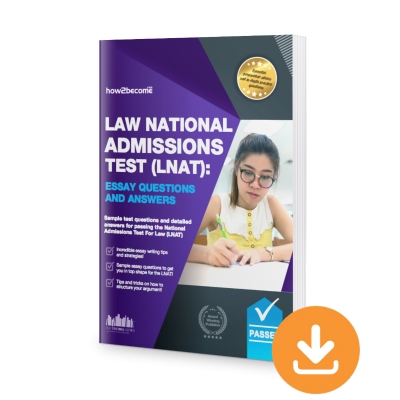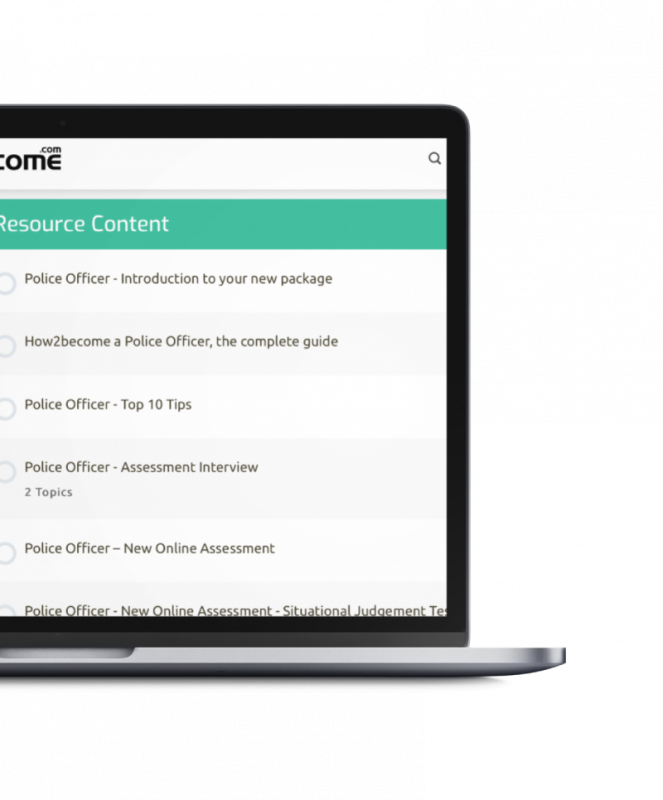
LAW NATIONAL ADMISSIONS TEST (LNAT) ESSAY QUESTIONS
Sample test questions and detailed answers for passing the National Admissions Test For Law.
4.9/5 Rating | 1,000+ Reviews ![]()
Training That Works
Discover insider secrets and a masterclass of testing practice material that has helped 100s of candidates pass their LNAT.
Unlock Your Potential
Whether you’re just starting out or you know what to expect, you will get access to sample practice questions, with solutions that will catapult your chances of success.
Powerful Resources
Get instant access to the material right now which includes tips and tricks on how to structure your argument!
WHAT IS THE LNAT?

ABOUT THE LNAT ESSAY
The Essay Section of the LNAT will require you to answer one essay question out of three possible choices. Your answer should be no longer than 750 words, and a standard essay should be between 500 to 600 words. You will only have 40 minutes to conduct the entire essay, and so time management is crucial.
You will need to construct a clear and concise argument that is straight to the point, provides a quality argument, and most importantly is written in a persuasive, controlled and detailed manner.
The best preparation for your LNAT in regards to the essay section of the assessment, is to practice drafting essay plans and reading high quality newspapers (usually in the form of a broadsheet). Reading newspapers will allow you to gain a basic understanding of the goings-on in the world around you, including current affairs, economics, technological changes, and social developments.
You are not expected to have a detailed understanding of the essay topics which will appear in the exam. What is expected from you, is to create an argument based on explanations, assumptions and analysis that fundamentally form a persuasive and conclusive argument.
When choosing which question you are going to answer, it is important that you feel comfortable enough to write approximately 600 words on that topic in a clear, informative and analytical manner. You will need to keep yourself informed of current affairs and read up on what is going on both internationally and locally, if you wish to score high marks on your LNAT.
STRUCTURE OF THE ESSAY
You need to have the ability to coherently structure your argument, so that it reads well. The sole purpose of LNAT essay questions are to demonstrate your ability to persuasively conduct an argument and convey your thoughts in the best way possible.
Although your essay does not get marked, and it does not form part of your LNAT score, it will be the only piece of writing that your chosen university will have access to. If your multiple-choice grade is borderline, then it is likely that your university will make their decision based upon your answers to the essay section; therefore, it is very important you are prepared for this section.
During the planning stages of your essay, you should ask yourself the following four questions:
The structure of your essay is important. You need to be able to convey each stage of your thought process. You will no doubt have had to write lots of essays prior to taking your LNAT assessment. Thus, you will be no stranger to the basic format of any essay: the introduction, the main body and the conclusion. This is no different in the LNAT.
LNAT ESSAY QUESTIONS: TOP TIPS
For this section, you will have 40 minutes in which to answer one question from a choice of three possible essay topics.
Generally, the essay section should be between 500-600 words.

TOP TIP 1
Planning your answer and working through a mental structure of what to include in your answer will help in terms of time management. If you make a solid plan before you begin writing, chances are you will have a better understanding of what you want to include in your essay.
TOP TIP 2
Aim to spend the first 15 minutes of your time planning and writing your introduction. Spending this much time on this part of your essay will demonstrate to the assessor that you have carefully thought about what you want to say.
You should spend 15 minutes on the main body of your essay. This will include all of the main points and arguments you wish to make. Get straight to the point; do not waffle. Provide evidence and examples to support your reasoning and hypothesis.
You should spend the remaining 10 minutes concluding and re-reading your essay. Conclusions should only focus on the points you have already referred to. Summarise your key points and demonstrate your view/opinion on the overall matter.


TOP TIP 3
You need to think realistically about how much time you have to make the number of points you want to discuss. Distributing your time between each point will not only make your essay read more coherently, but it will ultimately demonstrate to the assessor that you have not spent too much time on one point, and not enough time on another.
TOP TIP 4
Assumptions work as well as facts. As long as you say what the assumptions are and what they mean in terms of the argument, your essay will still gain strong marks.


TOP TIP 5
The essay does not want you to ‘sit on the fence’ with your answers. You need to take a side and make a compelling argument.

PASS THE LNAT

- A comprehensive overview of what the LNAT essay questions section entails, and how it is used to assess law candidates.
- Top tips on how to prepare for the LNAT essay questions, including the best newspapers to read!
- A full list of top tips on making the most of the allocated time, to produce a fantastic essay!
- 24 sample questions, with a breakdown of how to answer each and every single one!
- A FREE link to our psychometric testing suite, to improve your LNAT skills in advance of the exam!
SAMPLE LNAT ESSAY QUESTIONS
To help you get a better understanding of what the LNAT involves, let’s take a quick look at a few sample questions.
FREE | 2 Questions
Law National Admissions Test Practice Questions
Should we be patriotic?
When answering this question, the first thing you need to be aware of is the definition of patriotism itself. Patriotism is defined as having an emotional attachment to and pride in a nation, which an individual recognises as their homeland. This question is asking you to analyse two things.
-Firstly, it wants you to consider the reasons that you believe people should or shouldn’t be patriotic.
-Secondly, the question wants you to look at the consequences of patriotism, and consider whether we should or shouldn’t be patriotic in a wider context. For example, you could look at the positive effects of patriotism; i.e. taking an interest in the affairs of one’s nation, paying taxes, providing social support etc., and contrast these with the negative effects of patriotism; i.e. nationalism, war and hatred.
Introduction. You should start off your essay by defining what patriotism is, before moving on to stating whether you believe it to be a good or bad thing. Then, you should state (briefly) why you believe this. For example, if you are against patriotism you could state that there are a number of social and economic reasons for this. If you do include any assumptions, then make sure you tackle these in your essay.
- Primary amongst these, you could argue, is the positive impact that patriotism has upon the citizens of a nation. Patriotism encourages people to keep to the laws of the country, work for the greater good of the nation and provide support to other citizens within that nation.
- Patriotism often has the result that people of one nation are seen as a ‘family’, and will stand up for one another, living in unity and respect. The more patriotic the citizens of a nation, the more they will work to build a stronger and healthier nation. This is particularly true for moments of national crisis. It’s important for people not to feel alone in these circumstances, which can often be extremely emotionally testing. A good example of this is the 9/11 attacks in America. The people of the USA banded together to support one another, making the events much easier to cope with from an emotional standpoint.
- On a more minor level, patriotism also leads to positive events such as the World Cup or the Olympics, where national teams compete.
- You could start by enforcing the idea that patriotism is subconsciously xenophobic. We are all members of the human race, and are no different to one another. Countries are just arbitrary borders designed to enforce the idea that English are different from Spanish, Italians from Germans etc. This is not healthy, and often leads to a severe clash of cultures.
- Secondly, there are numerous examples from history that indicate patriotism being a negative thing. Primary amongst these is the world wars. In particular, World War 2 was caused by extreme national pride (in Germany). Combined with severe social unrest, this led to an uprising which resulted in the deaths of millions of people.
- You could also argue that despite the success of events such as the World Cup, there is still an underlying xenophobia prevalent from the citizens of each nation towards other nations. I.e. the English are rooting against the Italians, or the Germans, or the Spanish. Such events could easily be held without this. Often, it leads to people who aren’t patriotic being ostracised or treated as traitors. This is not healthy.
Counter. To counter the above, you could argue that there is a difference between patriotism and nationalism. Patriotism means having a healthy respect for your nation, whereas nationalism is the term for taking this to extreme levels. World wars were caused by nationalism and not patriotism. Patriotic people are not encouraged to hate people of other nations; just to take pride and respect in their own. Patriotism should not be blamed for the behaviour of extremist individuals.
Rebuttal. You could respond to the above by stating that although there is a difference between patriotism and nationalism, patriotism breeds nationalism. By enforcing an unnecessary and unhealthy idea that people of one nation are different from those of another, we generate tension between countries, which leads to a sense of hatred from disenchanted individuals. This results in extremist behaviour, and accelerates global conflicts.
Conclusion. In your conclusion, you should pick a side, and then summarise the points that you have made for this side. Just as in the essay, it is a good idea to acknowledge the other side of the argument or one particular key facet of this side; before dismissing it with a strong counter argument. Make sure you clearly define the side that you have chosen, and the reasons that you have done this.
Should schools have a uniform?
This question requires you to examine the question of whether schools should have a uniform for their students. That is to say, a uniform which marks them out as being a student of the school/college/organisation. In order to answer this question, you should consider the following points.
Firstly, you should look at the positive and negative elements that having an established uniform can bring. Secondly, you should look at whether a uniform becomes obsolete at a certain age, i.e. in school but not in sixth form.
Introduction. In your introduction to this essay, you should state where you stand on the issue of schools having a uniform. You can use brief and overarching examples, i.e. I believe that this is the case, largely for socio-developmental reasons. You can include assumptions that you expect to make, provided you support them in your essay, and then look at whether you believe there is a particular age at which a uniform loses its value.
- Firstly, you could argue that having a uniform encourages discipline. Just as you would set rules for children to abide by, in order to encourage order, you would set out a uniform as a code of conduct.
- Secondly, you could argue that children don’t have the maturity to choose clothing that is appropriate for the school environment. They are at a rebellious age, particularly in their teens, and giving them the choice of what to wear to school could have negative consequences.
- Thirdly, it could be argued that allowing children to wear their own clothes to school will detract from their learning. Schoolkids and teenagers are at a vulnerable age, where they should be focusing on their education. Allowing them to wear their own clothes gives them another thing to think and worry about.
- Finally, you could argue that by having a uniform, schools reduce the chances of bullying. Schoolchildren are competitive, and there is a danger that certain individuals will be singled out for their choice of clothing, leading to conflict and distress.
- Primarily, you could argue that we should be encouraging children and teenagers to express their individuality. Their choice of clothing is a fantastic way to do this, and is a key form of expressionism. People are unique, and shouldn’t be grouped together in a communist fashion.
- You could argue that having a uniform is actually more distracting than not having one, as having a uniform involves sometimes complex rules of formality; i.e. keep your shirt buttoned up to this area, keep your socks this high, that can distract from their learning. Allowing children to wear a relaxed and comfortable choice of clothing will have positive effects in the long run.
Counter. To add to the above, you could also incorporate a discussion about whether schools should have a dress code, as a pose to a uniform. This would be a more relaxed code of dress, which allowed children to wear their own clothes, whilst still keeping to a set of ground rules i.e. no offensive t-shirts, skirts above knee height, etc. If you are in favour of having a uniform, you could also discuss at what age you believe the need for a uniform becomes obsolete or loses its value.
Conclusion. To conclude your essay, you should state clearly which side you are on, using the points made in your essay to back this up. You should also summarise any other arguments that you have made in the essay, for example on whether schools should have a more relaxed dress code instead of a uniform.

Pass the LNAT. First Time.
Crafted for everyone, no matter your skill level or background, this download was made to help you achieve one goal: pass the LNAT exam.
WHAT WILL YOU LEARN?
Scoring Criteria
Essential information about how you will be assessed during the National Admissions for Law test.
LOTS OF SAMPLE QUESTIONS
Practice questions with realistic essay titles, reflecting potential LNAT topics, and modern affairs.
PRACTICE SAMPLE TEST QUESTIONS
A full breakdown of how to improve your essay writing style and how to convey your arguments in a
clear and logical fashion,.
FULLY-WORKED SOLUTIONS
Solutions for all questions so you can be confident in learning and improving your score.
INSIDER SECRETS
Insider tips on how to answer the questions and a breakdown on how you will be scored.
SCORE-BOOSTING STRATEGIES
Get ahead of the competition with unique and proven strategies 16 years in the making.
Customer Success Stories
Having helped 1,000s of people pass their assessment tests for over 16 years, it is no wonder our customers love us…

Fantastic, yet another great exercise book fit for the task at hand. Easy to understand from start to finish with a full comprehensive guide.

This book is very informative and easy to understand. I think the layout is good and it is a very useful guide to the type of questions that may come up in the LNAT.

Jolly good overview of process at start. A bit like a comprehension book but that is what is needed. Plenty of space around passages to be read. This speeds it up. Very clear explanations. Helps with forming an argument. Example essay useful.

Amazing book that is really helping me prepare for my LNAT exam! Great help and tips. Lots of essay questions to practice which I found VERY helpful.

As a first year Law student, I have completed the LNAT and have also sifted through many useless question and answer books. This is by far the best, as once you get this book you will not have to browse the web for any information on the LNAT as the first couple of pages include a thorough guide. Questions are provided with pointers, that help stimulate your answers without giving it away. This is useful as it helps you to understand the issues you may need to identify in the questions. The questions also cover a wide range of topics which you may be quizzed on, which is helpful.

WHAT’S INCLUDED IN YOUR DOWNLOAD?
Complete guidance to ensure you pass the selection tests.
- A full breakdown of what skills the LNAT essay questions will test.
- Useful tips and advice for constructing your essay responses.
- Top tips on how to prepare for the assessment.
- Plenty of sample questions to help ensure that you are ready for the actual test.
- Realistic essay titles, reflecting potential LNAT topics, and modern affairs.
- Guidance and strategies for writing succinct, focused essays.
- Advice on how to impress the LNAT essay assessors.
PLUS…BONUS!

BONUS
PLUS…30-Day Free Subscription Trial To The Online Aptitude Testing Platform!
As well as life-time access to the LNAT Essay Questions and Answers download, this product also includes a 30-day free trial to Online Aptitude Testing Platform (usually £9.99 + vat per month).

- Additional practice questions to help boost your scores!
- Practice all of the test questions under timed conditions using our online testing suite.
- Instant online access.
- Compatible on mobiles, tablets and computers.
- Scores are tracked so you can focus on areas that need improvement.
Important: This powerful free trial costs £9.99 + vat every month for everyone else! You will get unrestricted access to all of the quick-win strategies to give you the advantage right away.
Worth £9.99, Yours FREE for 30-days*
*We want you to know: This is a subscription service that is charged at just £5.95 + vat per month after the 30-day trial expires. No minimum term. If you cancel before the 30-day trial ends, you will not be charged. Please see our terms for full details.

✓ 30-Day Money-back Guarantee

✓ 30-Day Money-back Guarantee
Did you know? All orders with How2Become are protected by our 30-day money-back guarantee. What ever the reason…or no reason at all…you can have your money back if this resource isn’t right for you (see our terms for full details).
WHY BUY WITH HOW2BECOME?
CREATED BY THE EXPERTS
PROVEN TRAINING
EXCLUSIVE FREE BONUSES
Firstly, these guides are created by us and our team of experts – we have all the answers to your questions and will help you succeed (like we’ve been doing for the last 16 years), we update our material frequently and you can contact us at any time with any questions you have.
Secondly, we provide exclusive bonuses with all our products that you won’t find anywhere else. These bonuses include free guides, powerful online testing suites and more!
Finally, our guides and training just work. Take a look at our TrustPilot page where you will see our rating of 4.9/5. There, our customers share their positive buying experiences and more importantly the time-saving success our resources have given them (hint: they passed their assessment).

Learn how to PASS THE LNAT
We’ve helped 1,000s of aspiring applicants in their journey to succeed in a new career. Trust the UK’s #1 careers and education specialists to help you secure your role.
Get instant access »“Great variety of question types, exposes areas of weakness and gives you the means to improve. Clear and concise. Confidence builder. Great practice!”












